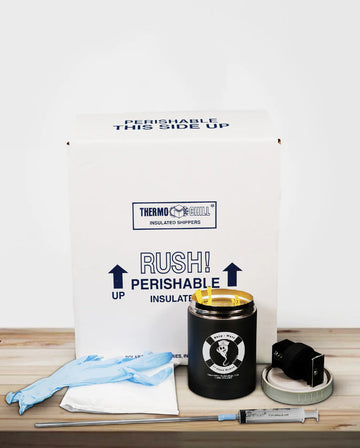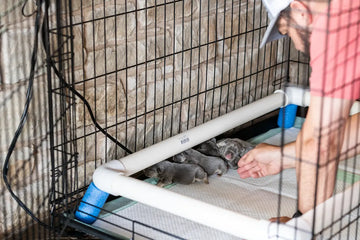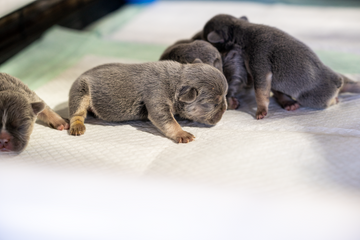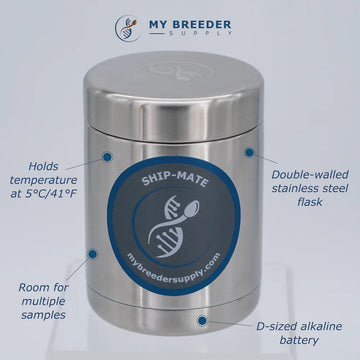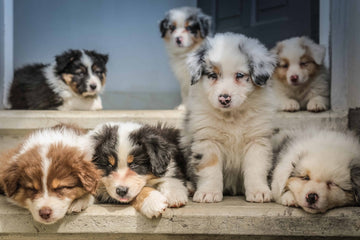
If you are a breeder, you have likely encountered a situation when a puppy is in discomfort, is lethargic, or, in the worst-case scenario, the mother does not survive the delivery or just doesn't care about the puppies at all. What should you do in these situations?
Even if the warmth of your hands helps keep a pup warm while its mother isn't there. You can warm up water bottles, rice bags, and towels to attempt to keep them warm, but the easiest and best method for you and the puppies will be a puppy incubator, where you can leave the puppy overnight and know it will remain the same temperature without overheating.
Pet owners now frequently use puppy incubators. These care facilities are made to guarantee the well-being and security of pups who are weak and newborns. The numerous advantages and requirements for an incubator, as well as how to care for your pups in these units, will all be covered in this article.
Why Purchase A Puppy Incubator?
Puppies are dependent on their moms to remain warm. Puppies may become too cold and die without their mothers. Puppies do not begin to generate their body heat until they are two and a half weeks old, at which point they begin to exhibit the shiver reflex. At birth, their temperature is usually between 95°F and 99°F. Your dog might suffer from potentially fatal hypothermia if the temperature falls below 94°F.
More than food, newborn pups need warmth. Puppies can go without food for at least 24 hours, but they can only survive for an hour without warmth. Despite our natural tendency to want to feed a distressed puppy right away, warmth is considerably more important.
Puppies that are too cold cannot eat or drink. Their respiratory and circulatory systems shut down, and their heart rates drop. Under these conditions, they won't survive very long. A chilly dog that is warmed up too fast risks dying.
Puppies with low body temperatures should be gradually brought up to a normal temperature of around 97°F over the course of several hours. Before feeding these puppies, they should have achieved a normal body temperature.
They can only survive without an external heat source when they can control their body temperature. This will occur at around four weeks of age when their body temperature would be a normal adult dog's temperature of 101.5°F.
Your responsibility is to provide the puppies with the greatest care you can until that time.
A temperature-controlled puppy incubator can support the recovery and survival of fragile newborn pups.
There is no need for constant monitoring because the temperature inside an incubator is controlled, so you can rest easy knowing the puppies will still be there in the morning.
Temperature
After birth, a pup's core (rectal) temperature should range from 95 to 97 ℉. Their body temperature rises gradually until it reaches 98 to 100 ℉ at three weeks of age. They will eventually maintain an average temperature of around 101F.
Puppies are unable to tighten the blood vessels at the skin's surface during the first week of life to keep warm. A puppy can only briefly sustain a body temperature that is 10° to 12°F higher than his immediate environment.
The puppy can experience life-threatening hypothermia if the heat source, which includes the mother, other puppies, blankets, and Incubator Care Unit, is withdrawn for around 30 minutes in a 72°F environment.
The Incubator Care Unit does not dry up the air like other incubators; instead, it warms the floor.
The temperature setting for the incubator floor should be 38C-40C/100F-104F.
The pups become cold if they are constantly stacked on top of one another. The pups are overheated if they are split widely apart and panting. The temperature is appropriate if they lie close to one another.
Maintain a level of moisture that is pleasant for people. A cloth dampened with water and put over a handmade box area may assist in adding moisture.
Ensure you're ready and have everything you'll need for both your dog and the pups if your dog is expecting a litter.
Make sure your facility has an incubator care unit so that the newborn puppies may stay warm during the first few weeks of their life and develop into healthy, happy adults.

